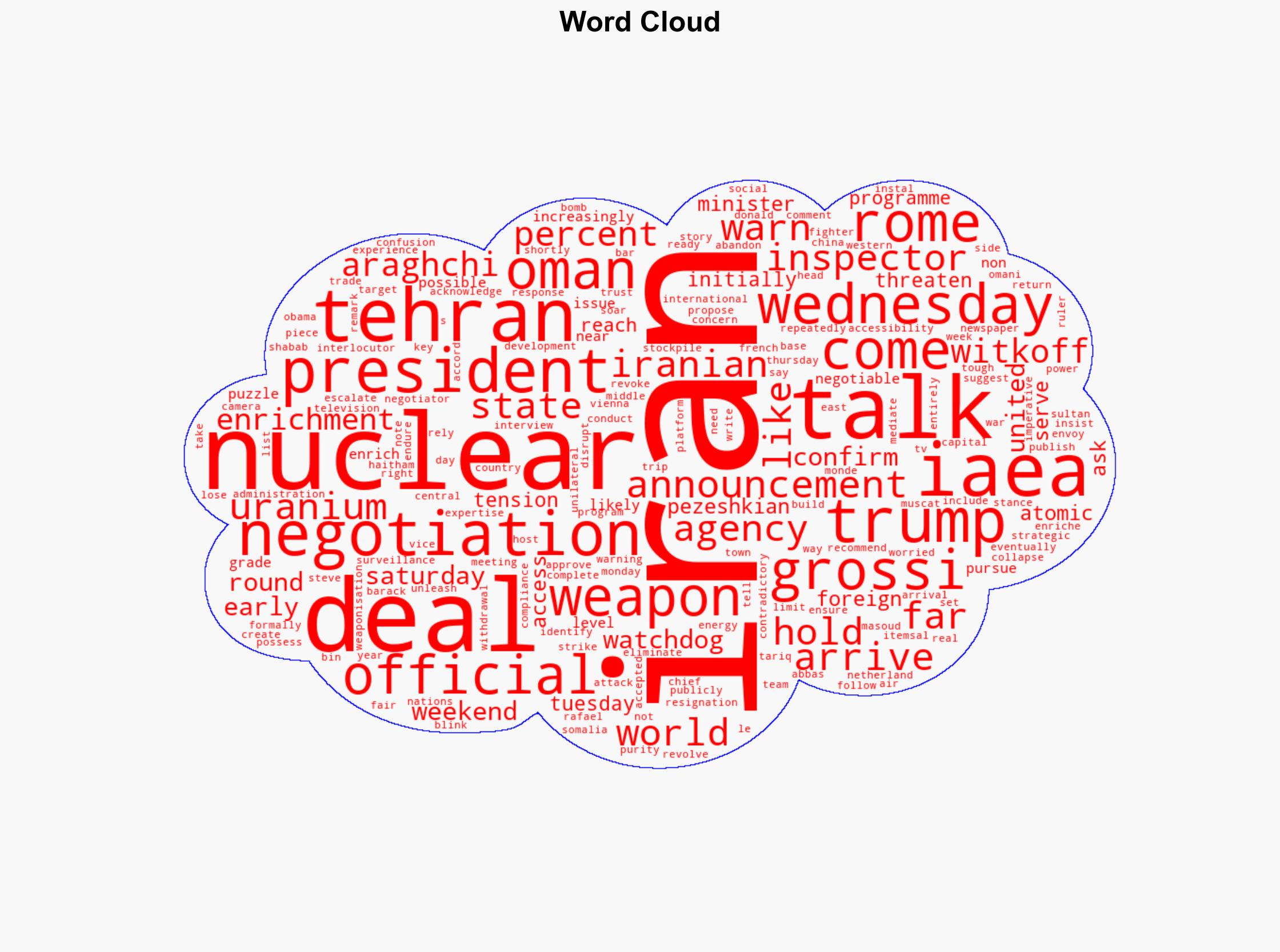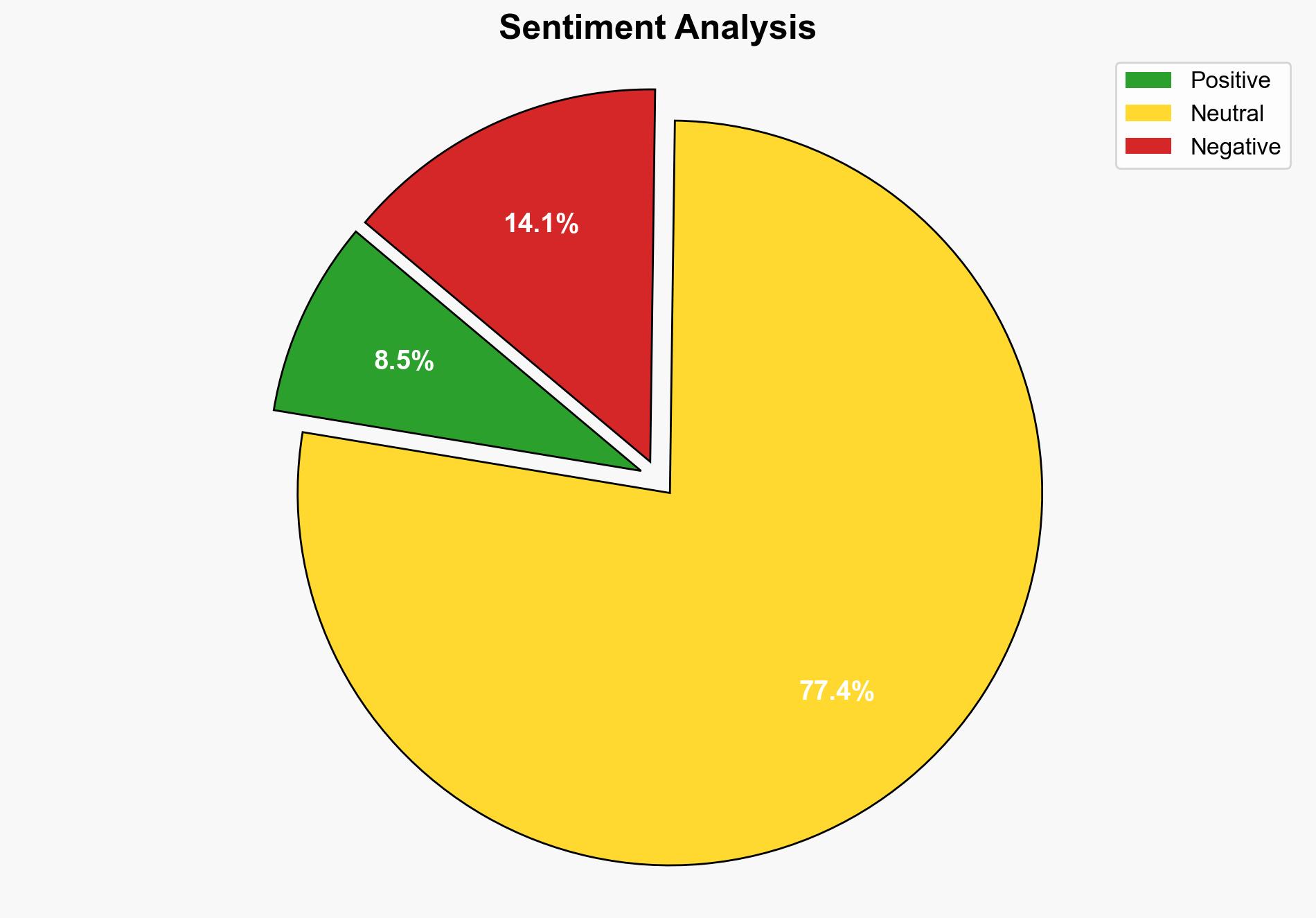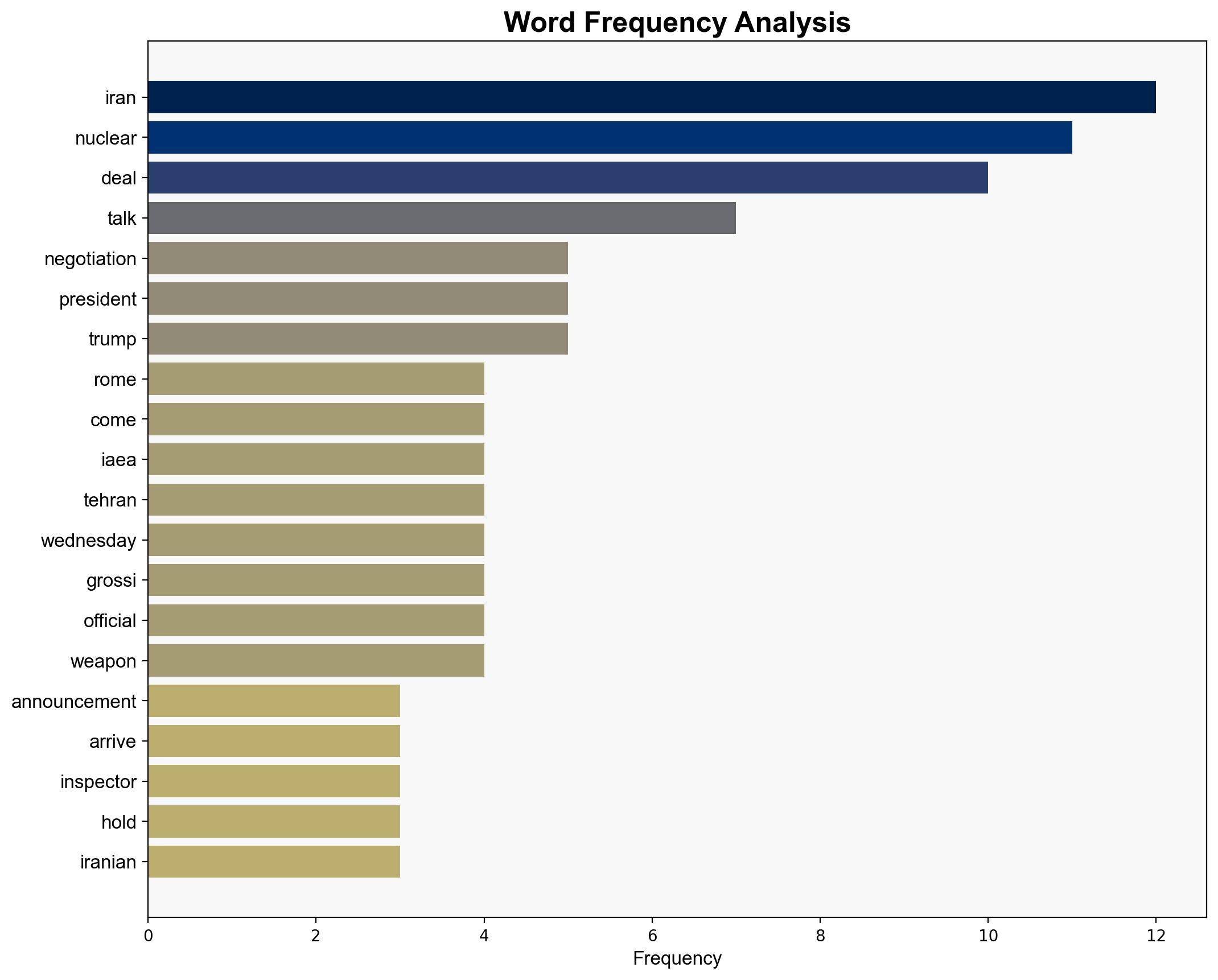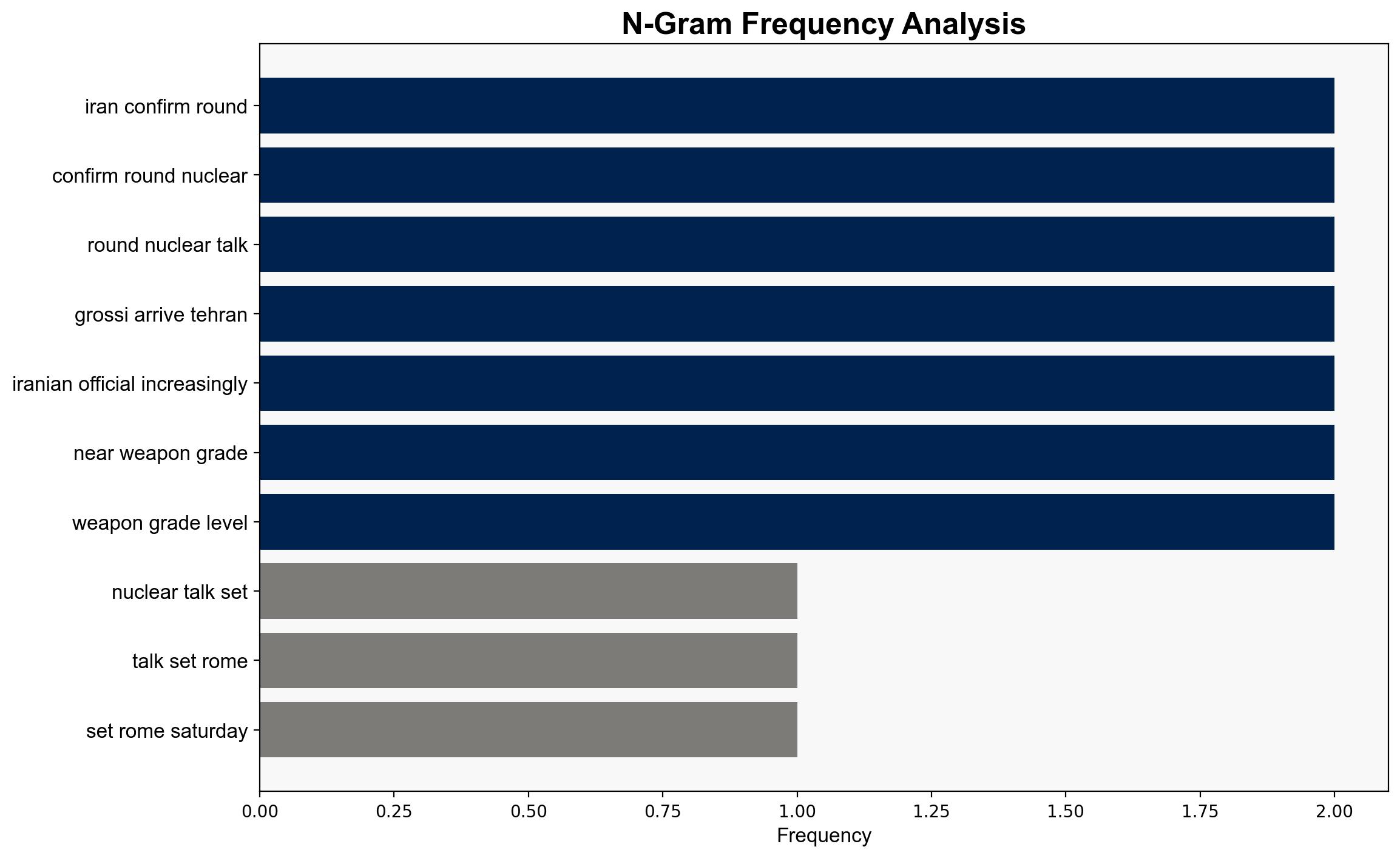Iran confirms next round of nuclear talks with US set for Rome on Saturday – Al Jazeera English
Published on: 2025-04-16
Intelligence Report: Iran confirms next round of nuclear talks with US set for Rome on Saturday – Al Jazeera English
1. BLUF (Bottom Line Up Front)
Iran and the United States are set to engage in nuclear talks in Rome, mediated by Oman, amid escalating tensions over Iran’s nuclear capabilities. The presence of the International Atomic Energy Agency (IAEA) in Tehran underscores the urgency of addressing nuclear inspections and potential proliferation risks. Strategic recommendations focus on diplomatic engagement and contingency planning for potential escalation.
2. Detailed Analysis
The following structured analytic techniques have been applied:
SWOT Analysis
Strengths: Iran’s strategic use of diplomatic channels, including Oman as a mediator, to engage with the US.
Weaknesses: Internal political instability, highlighted by the resignation of a key negotiator.
Opportunities: Potential for renewed agreements that could stabilize regional tensions.
Threats: Risk of military escalation if negotiations fail, given the US’s stance on air strikes.
Cross-Impact Matrix
The outcome of the Rome talks could influence regional stability, particularly affecting US-Iran relations and impacting European diplomatic efforts. Increased tensions may also affect global oil markets and regional security dynamics.
Scenario Generation
Scenario 1: Successful negotiations lead to a framework agreement, reducing immediate nuclear threats and stabilizing the region.
Scenario 2: Talks collapse, leading to increased sanctions and potential military confrontations.
Scenario 3: Partial agreements result in temporary de-escalation but leave critical issues unresolved, maintaining long-term instability.
3. Implications and Strategic Risks
The potential for Iran to achieve near weapons-grade uranium enrichment poses significant security risks. Disruption of IAEA surveillance increases uncertainty around Iran’s nuclear activities. Political instability within Iran could impact negotiation outcomes and regional alliances.
4. Recommendations and Outlook
- Encourage diplomatic engagement and support for mediation efforts to facilitate a comprehensive agreement.
- Prepare contingency plans for potential military escalation, including coordination with regional allies.
- Monitor Iran’s internal political dynamics for shifts that could affect negotiation stances.
- Scenario-based projections suggest prioritizing diplomatic channels to mitigate risks of conflict escalation.
5. Key Individuals and Entities
Masoud Pezeshkian, Rafael Grossi, Sultan Haitham bin Tariq.




